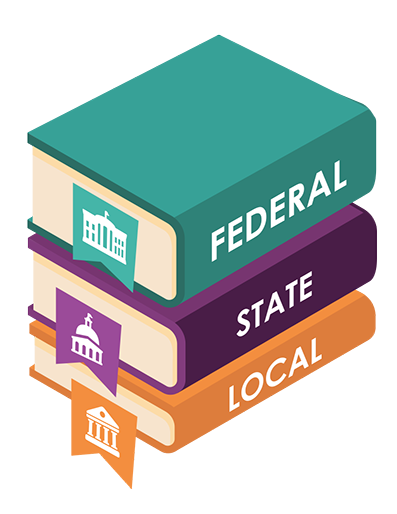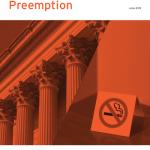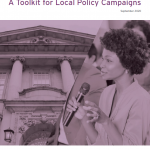An Equity-First Approach to Assessing Preemption
A journal article proposing a new framework for assessment & research
Preemption is a legal doctrine in which a higher level of government may limit or even eliminate the power of a lower level of government to regulate a specific issue. In these instances, federal law takes precedence over state and local law, and state law takes precedence over local law.
Preemption does not have an inherently positive or negative effect on health, equity, or good governance. Preemption is sometimes used by the federal government or states to advance civil rights and counteract current and historical inequities. Recently, however, some state legislatures have increasingly used preemption to hinder local policies that are designed to decrease inequities in health and opportunity. And there is reason to believe that this trend of misusing preemption to undermine local health- and equity-promoting policies will continue.
Equity First: Conceptualizing a Normative Framework to Assess the Role of Preemption in Public Health, a journal article published in The Milbank Quarterly, argues that existing frameworks for assessing preemption fail to reconcile its potential to both advance and hinder health equity. The authors — Derek Carr, Sabrina Adler, and Benjamin Winig from ChangeLab Solutions, and Jennifer Karas Montez from Syracuse University — suggest that development of an equity-first framework can help establish evidence-based criteria for evaluating whether preemption will enhance or inhibit equity.
The article also outlines a research and advocacy agenda to build the empirical evidence base necessary to fully develop and operationalize an equity-first preemption framework. Such research must recognize that preemption is not inherently for or against equity; it is merely a doctrine that reflects the values and goals of those using it. Researchers should prioritize understanding the effects of preemption on populations that have faced disproportionate marginalization, subordination, and exclusion from political processes. Such research must also contextualize empirical data with lived experiences, testimony, and stories of those who are affected by past or present health injustices.
Developing and operationalizing an equity-first preemption framework will require ambitious research and advocacy efforts, significant resource investments, and robust community support. But what is at stake in this effort could not be more important: ensuring that local communities can remain places of innovation for health- and equity-promoting policies while allowing states and the federal government to block local actions that are likely to create or perpetuate inequities.





